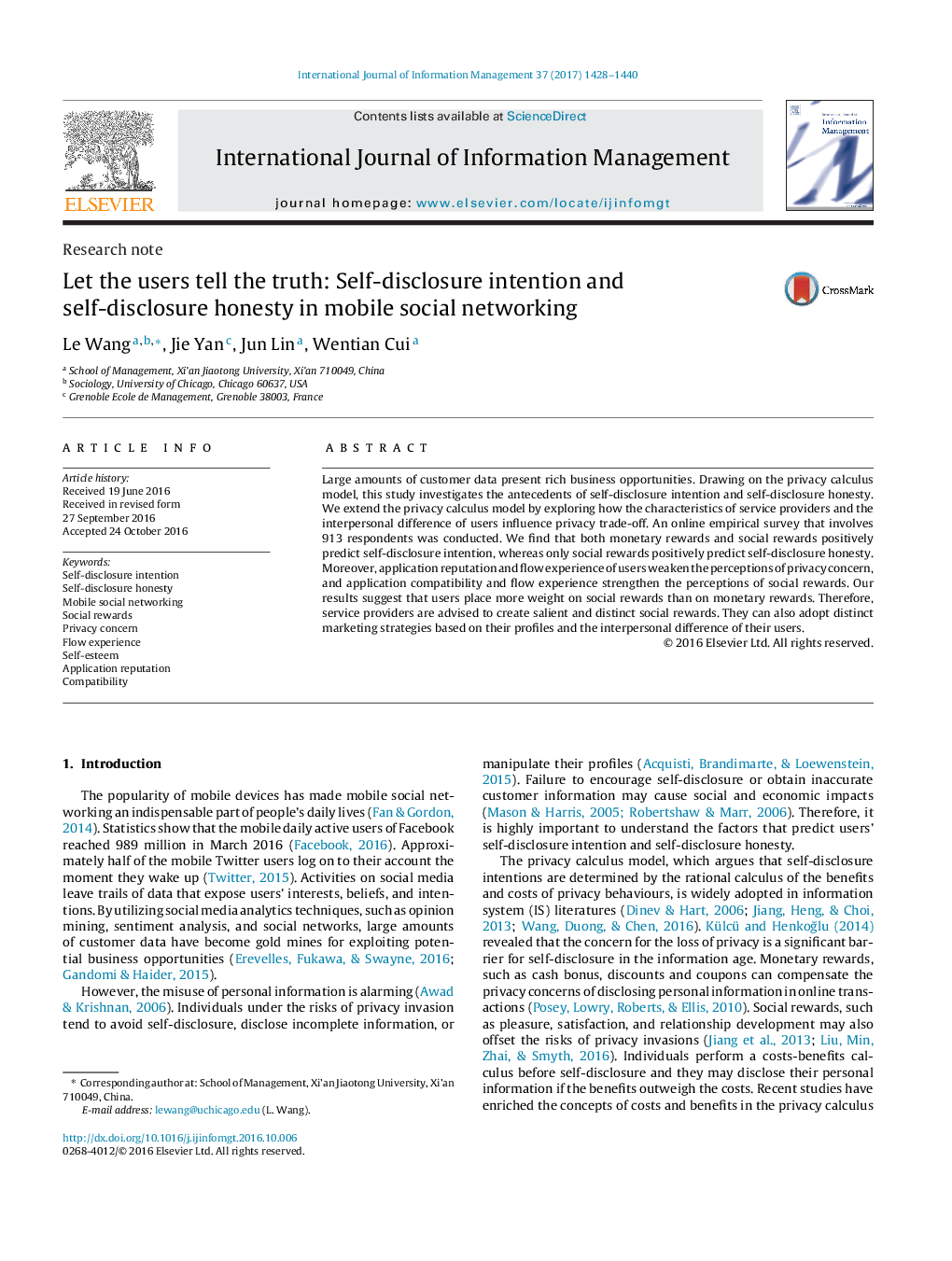| Article ID | Journal | Published Year | Pages | File Type |
|---|---|---|---|---|
| 5110781 | International Journal of Information Management | 2017 | 13 Pages |
Abstract
Large amounts of customer data present rich business opportunities. Drawing on the privacy calculus model, this study investigates the antecedents of self-disclosure intention and self-disclosure honesty. We extend the privacy calculus model by exploring how the characteristics of service providers and the interpersonal difference of users influence privacy trade-off. An online empirical survey that involves 913 respondents was conducted. We find that both monetary rewards and social rewards positively predict self-disclosure intention, whereas only social rewards positively predict self-disclosure honesty. Moreover, application reputation and flow experience of users weaken the perceptions of privacy concern, and application compatibility and flow experience strengthen the perceptions of social rewards. Our results suggest that users place more weight on social rewards than on monetary rewards. Therefore, service providers are advised to create salient and distinct social rewards. They can also adopt distinct marketing strategies based on their profiles and the interpersonal difference of their users.
Keywords
Related Topics
Social Sciences and Humanities
Business, Management and Accounting
Management Information Systems
Authors
Le Wang, Jie Yan, Jun Lin, Wentian Cui,
